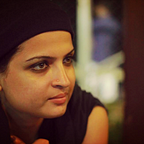Favourite Feminist Films
A Selection of TEN Feminist Films & The Women Who Made Them
- My feminist filmmaker guru is Agnes. Her films ALWAYS feature strong women. She is known for her ability to create female characters that choose to break the societal norms and live outside it. In this film, ‘Mona’ represents a gender encroachment. A sort of liberation that has only ever been a male bastion. It takes someone like Agnes to radically reverse the traditional image of the female that is freed from the patriarchal order.
2. This short film is both personal, about Cheryl, and political, about the lives and contributions of black people to cinema. The merging of the real and the imagined (her term for this genre is ‘Dunyementary’), the mixing of persona and performance exists to throw into relief the philosophical problem of representing the real, and the political importance of reconstructing a history that has been neglected.
3. This film uses the true-life stories of its all-female cast to construct its narrative. It revolves around a group of senior citizens who travel together on a coach trip. When their coach breaks down in the middle of the Quebec countryside, they are forced to get to know one another and work together to survive. The women come from many backgrounds, and through improvisation, their conversation exacts a true mirror of the society.
4. Germaine Dulac was involved in the avant-garde in Paris in the 1920s. The Smiling Madame Beudet (1922) and The Seashell and the Clergyman are important early examples of radical experimental feminist filmmaking and provide an antidote to the art made by the surrealist brotherhood. The latter film, an interpretation of Anton Artaud’s book of the same name, is a visually imaginative critique of patriarchy — state and church — and of male sexuality. On its premiere, the surrealists greeted it with noisy derision, calling Dulac “une vache.”
5. When Adelaide Norris, a black lesbian feminist and trade unionist, dies in police custody, the women, individually and in groups, get together to fight back against state oppression. Their organisations and the creativity of their militancy is at the heart of the film’s concerns, as it pays tribute to the pivotal contribution of women of colour in the political struggle: “Black women, be ready. White women, get ready. Red women, stay ready.”
6. This is the story of a middle-aged, middle-class woman, who has a car accident, suffers a concussion, and later worries that she has hit/killed a young boy. This film is a fitting political parable, a tribute to the ‘disappeared’: the thousands of trade unionists, activists and left-wing students who went missing under Argentina’s 1970s dictatorship.
7. Margarethe von Trotta started making films as part of the New German Cinema wave in the 1970s, which typically portrayed repression of the state. Her films explored the psychology of relationships between women, often sisters or very close friends. In this film, von Trotta explores the twin themes of state repression and family guilt.
8. The premise of this Dutch radical feminist film is that men and women inhabit different universes. It is built around a central incident in which three women, a mute housewife, a garrulous cafe worker, and a business secretary, unite to batter a male shop assistant to death.
9. Marzieh Meshkini is one of several women directors working in contemporary Iranian cinema. The film is structured in three episodes and each segment tells the story of a female at a different stage of her life. She is an Iranian cinematographer, film director, and writer.
10. Sally’s films take a rigorous look at the power of patriarchy and the relationship between capitalist economics and women as exchange objects. This film is concerned with the power of the image, mediated through an examination of cinema itself — its history and its ideological power.
